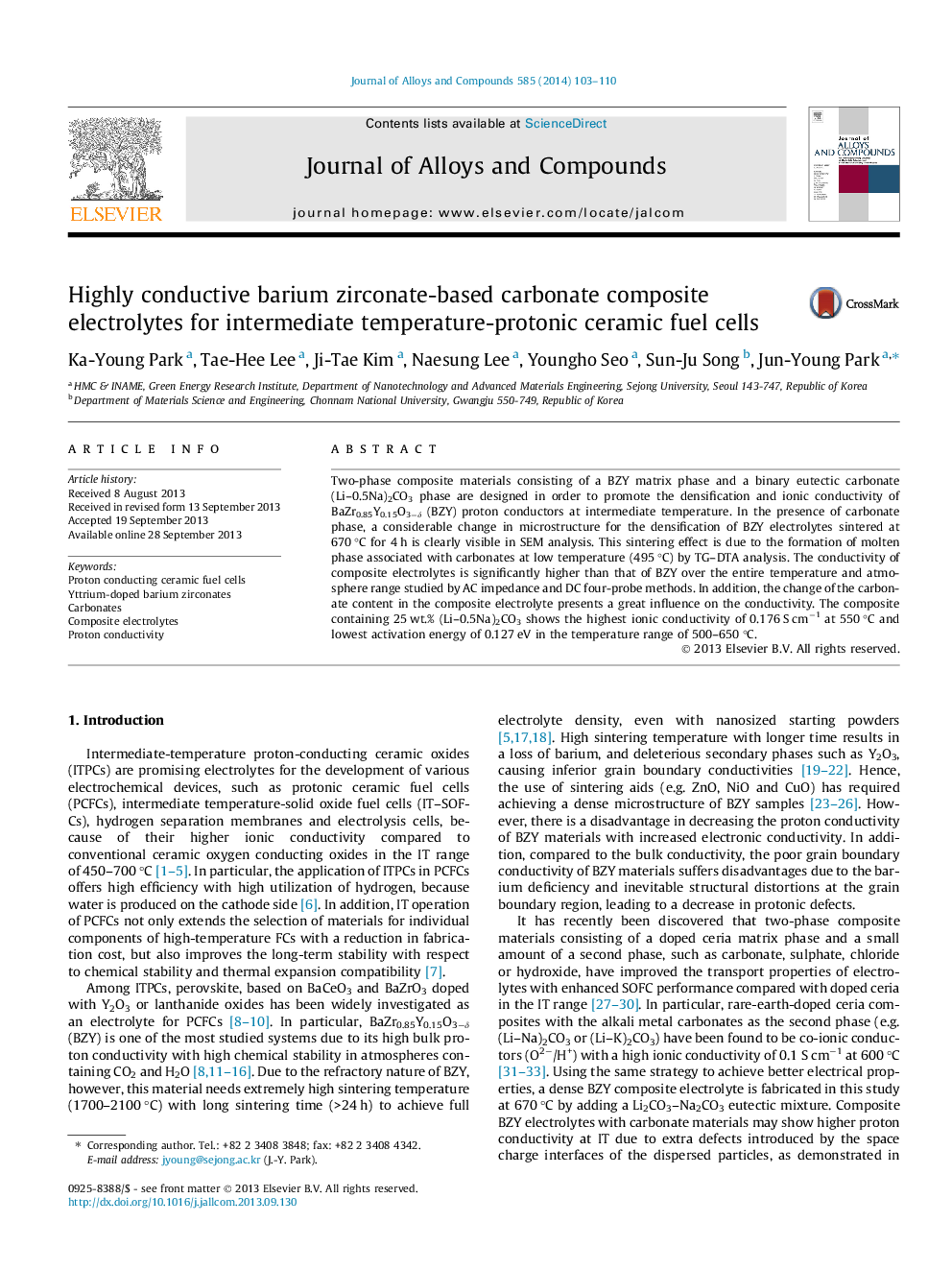| Article ID | Journal | Published Year | Pages | File Type |
|---|---|---|---|---|
| 1612953 | Journal of Alloys and Compounds | 2014 | 8 Pages |
•Composite BaZr0.85Y0.15O3−δ proton conductors with (Li–0.5Na)2CO3 are fabricated for protonic ceramic fuel cells.•(Li–0.5Na)2CO3 promotes the densification of BaZr0.85Y0.15O3−δ at low sintering temperature.•The conductivity of composite electrolytes is significantly higher than that of BaZr0.85Y0.15O3−δ.
Two-phase composite materials consisting of a BZY matrix phase and a binary eutectic carbonate (Li–0.5Na)2CO3 phase are designed in order to promote the densification and ionic conductivity of BaZr0.85Y0.15O3−δ (BZY) proton conductors at intermediate temperature. In the presence of carbonate phase, a considerable change in microstructure for the densification of BZY electrolytes sintered at 670 °C for 4 h is clearly visible in SEM analysis. This sintering effect is due to the formation of molten phase associated with carbonates at low temperature (495 °C) by TG–DTA analysis. The conductivity of composite electrolytes is significantly higher than that of BZY over the entire temperature and atmosphere range studied by AC impedance and DC four-probe methods. In addition, the change of the carbonate content in the composite electrolyte presents a great influence on the conductivity. The composite containing 25 wt.% (Li–0.5Na)2CO3 shows the highest ionic conductivity of 0.176 S cm−1 at 550 °C and lowest activation energy of 0.127 eV in the temperature range of 500–650 °C.
